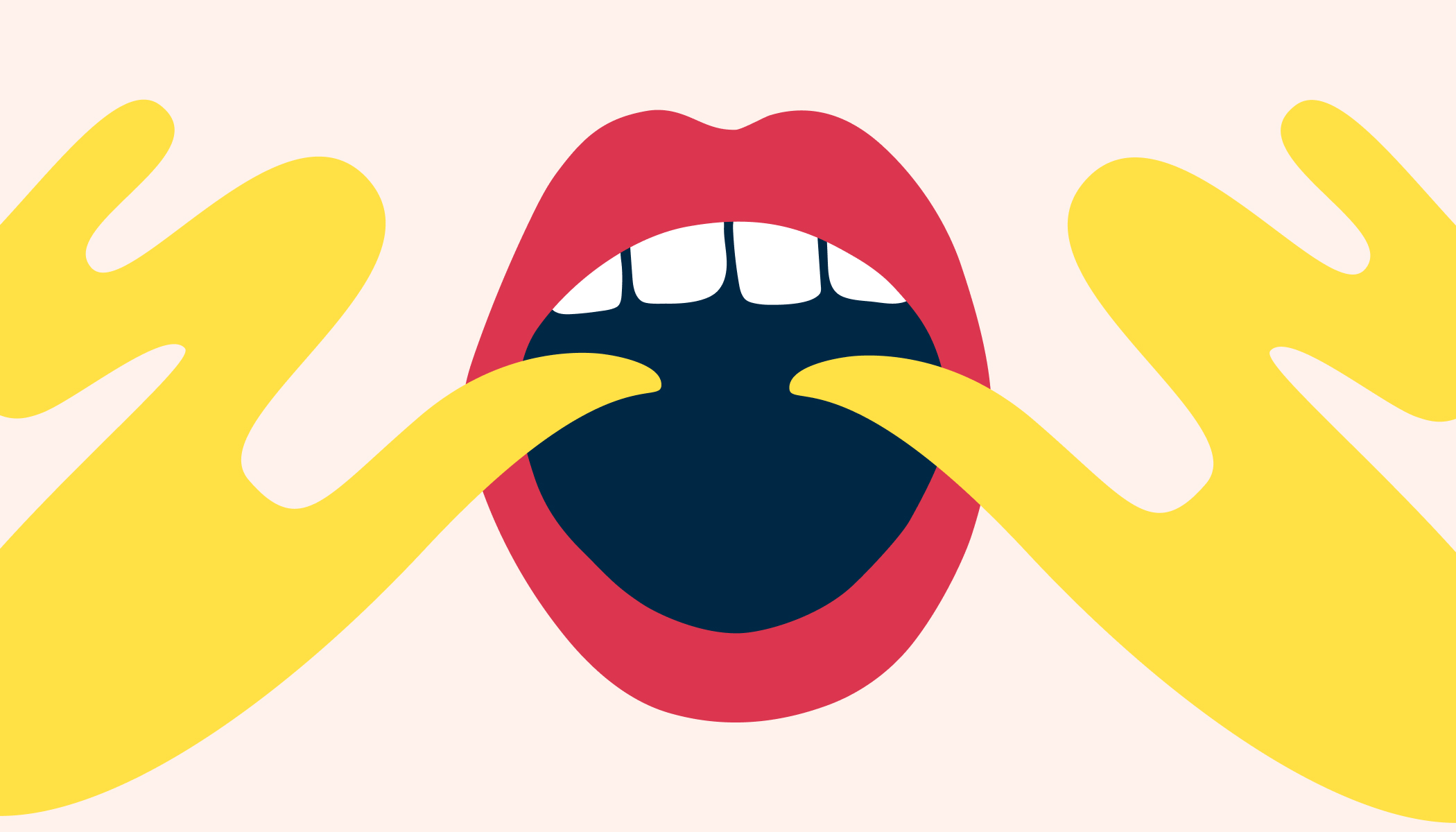We’ve all experienced bad breath (also known as halitosis) at some point – from morning breath to the effects of spicy or pungent foods. If your breath smells, it can make you self-conscious and stressed, especially in social situations or when getting up close to a partner.
Here are the main causes and the easy steps you can take to minimise bad breath.
What’s the main cause of bad breath?
Bad breath is usually caused by an excess of bacteria in your mouth, which produce smelly gases called volatile sulphur compounds. ‘These sulphur-producing bacteria normally live on the surface of your tongue and in your throat,’ says Dr Nikki Ramskill, a Livi GP.
‘Lifestyle habits, illness and certain foods can make your breath smell because they encourage these bacteria to release odours. But if you can keep the bacteria in your mouth happy, you’re less likely to develop bad breath.’
If you regularly have bad breath, it could also be an indicator of a tooth problem or an underlying health condition. If you’re concerned, speak to a doctor or dentist, depending on your symptoms.
What causes bad breath?
1. Smelly foods
Foods like garlic, onions, chives and spices can cause bad breath. Garlic and onions are part of the same family of vegetables with sulphur-containing compounds, which gives them their flavour.
‘After these foods have been digested, their compounds are absorbed into your bloodstream and carried to the lungs, which makes your breath start to smell,’ explains Dr Ramskill.
2. Gum disease
If you have persistent bad breath, it might be a sign of gum disease. ‘Gum disease can lead to bad breath due to the build-up of plaque along the gum line,’ explains Dr Ramskill.
‘When food particles aren’t cleared away regularly, it allows bad breath-related bacteria to multiply and grow.’
3. Dry mouth
A dry mouth often occurs when your production of saliva slows down. Saliva helps to cleanse your mouth by removing bacteria and leftover food particles, so a dry mouth can leave you prone to bad breath.
You’ll naturally experience a drier mouth at night, because your salivary glands produce less saliva, leading to ‘morning breath’.
And it can be a side effect of some medications, including the contraceptive pill, antidepressants and sleeping tablets. ‘It may also be due to alcohol, stress or dehydration,’ says Dr Ramskill.
4. An underlying health concern
Conditions that can affect your airways may also affect the smell of your breath. These include:
- Asthma
- Cystic fibrosis
- Kidney failure
- Liver disease
- Postnasal drip
- Tonsillitis
- Sinusitis
- Bronchitis
- Pneumonia
Diabetes can also affect your breath. ‘Diabetes raises the glucose levels in your saliva, encouraging bacteria growth and bad breath. This can also lead to gum disease and tooth decay,’ Dr Ramskill says.
If your breath smells fruity or like acetone, the chemical in nail polish remover, it could be a sign of diabetic ketoacidosis. ‘This is caused by the body burning fat instead of glucose,’ says Dr Ramskill. ‘The ketones released by this process produce a waste product, which causes the smell.’
5. Acid reflux
Bad breath is a common symptom of chronic acid reflux or gastroesophageal reflux disease (GERD). ‘This is because the contents of your stomach – including stomach acid, bile and undigested food – flow back up into your oesophagus, the tube that takes food from your mouth to your stomach. This can cause a bitter or sour taste in your mouth,’ Dr Ramskill says.
‘It can also be caused by a type of bacteria that infects your stomach, called Helicobacter pylori. If your bad breath is a new problem and you haven’t eaten something to cause the acid reflux, speak to a doctor. A doctor may request a stool test, which can detect these bacteria.’
6. Restrictive diets
Cutting down on carbohydrates and fasting can also lead to a distinct fruity or acetone-smelling breath. This is because it can cause the body to break down fat instead of carbohydrates to create energy, which produces chemicals called ketones that are released in your breath.
You may also develop a dry mouth in the early stages of dieting as your body loses water.
7. Poor dental hygiene
Perhaps the most common reason for bad breath, particularly in children, is poor dental hygiene. Not brushing and flossing teeth daily can lead to an excess build-up of bacteria between the teeth and gums, causing bad breath. These bacteria can also cause gum disease and tooth decay.
8. Smoking
As well as staining teeth, irritating gums and dulling taste buds, tobacco can also cause bad breath. ‘When you smoke, chemicals found in cigarettes stick to the surfaces of the teeth and gums – leading to more sulphur-releasing bacteria,’ says Dr Ramskill.
How do I get rid of bad breath?
The good news is there are some easy ways to minimise bad breath. Here are Dr Ramskill’s tips:
Chew on fresh mint or parsley after a meal These can help neutralise the odours in your mouth caused by sulphur compounds.
Keep your teeth clean Gently brush your teeth and gums at least twice a day for 2 minutes with a toothpaste containing fluoride.
Floss or use a tongue cleaner At least once a day, clean between your teeth with interdental brushes or floss, and gently brush your tongue with a tongue scraper or cleaner. One study found that using a toothbrush to brush the tongue in a cross pattern 6 times resulted in a significant reduction in bacteria and halitosis.
Don’t rinse your mouth immediately after brushing This is because it will dilute the fluoride in the toothpaste and reduce its protective effects. You also shouldn’t eat or drink for 30 minutes after using a fluoride mouthwash.
Chew on sugar-free gum between meals This can also prevent a dry mouth because it stimulates your salivary glands.
Changing a few lifestyle habits can also help with bad breath:
Drink plenty of water This will help prevent your mouth from becoming dry, and it will rinse away food particles between routine brushing.
Give up smoking As well as preventing your teeth from staining, you’ll also have fresher breath.
Limit sugary foods and fizzy drinks Bacteria thrive on these to make acid, which contributes to tooth decay and erosion.
Have regular dental check-ups This will help to keep your mouth healthy and prevent dental problems from occurring.
When should I see a doctor?
‘If these remedies aren’t lasting or working, there’s likely to be an underlying reason,’ says Dr Ramskill.
Speak to a doctor if:
- You have bad breath that doesn’t go away after treating it yourself for a few weeks
- You have bad breath associated with other symptoms, such as acid reflux
- You’re taking medication that could potentially cause bad breath
This article has been medically approved by Dr Nikki Ramskill, a Livi GP.


